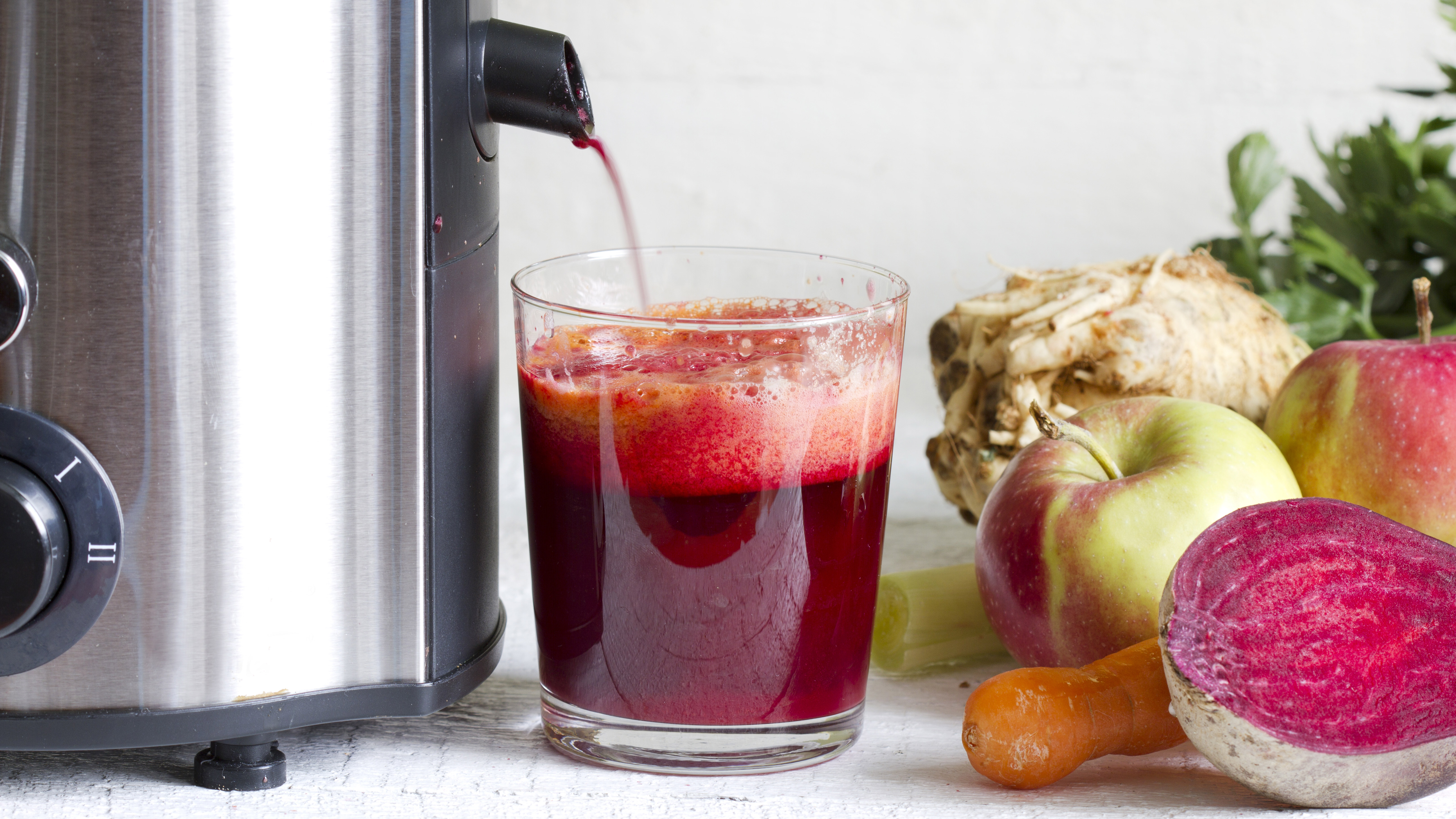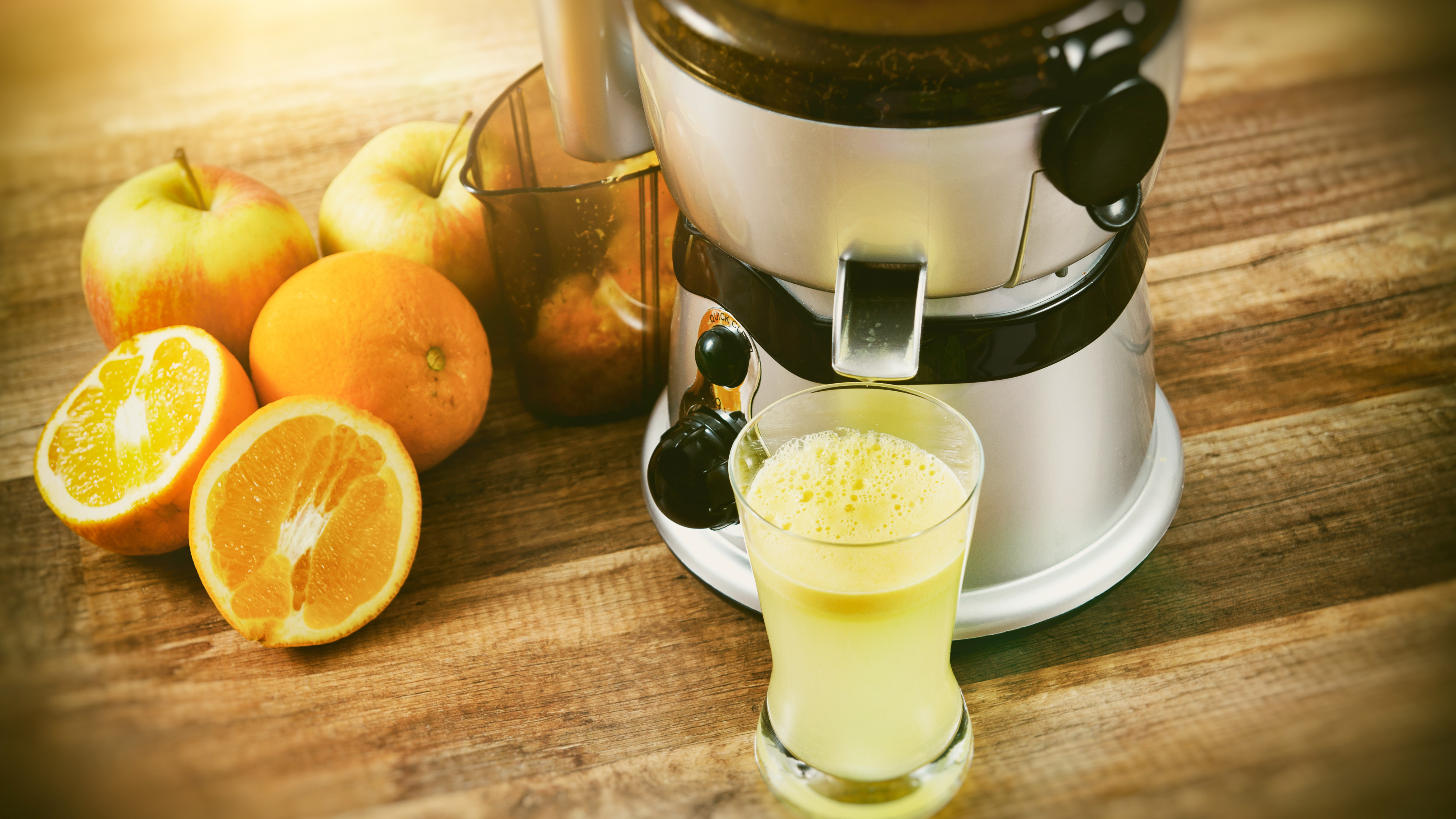Centrifugal juicers vs cold press juicers: which should you buy and why?
Not all juicers work in the same way, we explain the differences so you can decide which is right for you.

Sign up for breaking news, reviews, opinion, top tech deals, and more.
You are now subscribed
Your newsletter sign-up was successful
Extracting the juice from fruit and vegetables into a refreshing drink can be a great way of introducing more fresh produce into your diet. In particular, if you’re someone that doesn’t enjoy eating a wide array of different varieties, juicing can ensure you still get all the vitamins and minerals your body needs.
One of the best juicers is a must-have if you’re looking to introduce more juices into your diet, which can also be a great way to consume two or more fruits and three or more vegetables a day - a recommendation from the Dietary Guidelines for Americans that only 8% of adults in the US are achieving, according to America’s Health Rankings.
Store bought juice usually comes in plastic containers and if you’ve got an abundant local supply of fresh fruits and vegetables it makes sense to ditch the wasteful plastic packaging and make your own instead. It might be more convenient to buy juice at the store but these juices are often pasteurized which can damage vitamins and minerals plus some have added sugar. If you’re partial to fruit juice you’ll get the best nutritional value from freshly extracted juices.
There are two main types of juicer available, centrifugal juicers and cold press juicers which are also known as slow juicers or masticating juicers. Juicers perform one simple function: extracting the juice from fruits and vegetables, so you’d be forgiven for thinking the two types work in the same way and produce pretty much the same results. But this is not the case, and which type you end up buying will depend on what you’re most likely to juice as well as your budget.
Read on to find out just how centrifugal juicers differ from cold press juicers, or if you want to get your hands on one of the best juicers right now, check out these great deals for some of the best prices on the market.
Centrifugal juicers vs cold press juicers
Centrifugal juicers utilize sharp rotating blades that chop up the fruit and vegetables. The pieces are then spun at high speed which forces them against a strainer and it’s this centrifugal force that separates the juice from the pulp and gives these juicers their name.
Cold press juicers use a component part called an auger to grind and chew up the fruit and vegetables and then push the mixture through a strainer to separate the juice from the pulp. It’s a slower process, hence why they are also known as slow juicers and the auger grinds the fruit and vegetables in a way that’s similar to chewing which is why they are sometimes referred to as masticating juicers.
Sign up for breaking news, reviews, opinion, top tech deals, and more.
The main thing that pulls most people towards centrifugal juicers is the cost. They’re much less expensive than cold press juicers, which is a big draw if you’re new to juicing or if you’re on a budget. Cold press juicers on the other hand are quite an investment, with some costing in excess of $500/ £500 which means they’re usually favored by serious juice lovers as it can be difficult to justify that price tag if you’re a newbie juicer.
You might be thinking that there can’t possibly be enough of a difference to warrant such a huge price variation, and in our reviews of the best juicers we have found that for some fruits and vegetables juice yields are similar regardless of which type of juicer you’re using. But, if you’re a fan of kale shots or you want to juice any leafy greens for that matter, you’ll need a cold press juicer.
Centrifugal juicers don’t cope well with leafy greens and much of it ends up as waste, but cold press juicers are much more effective at extracting juice from leaves like kale and spinach or even herbs like parsley. The same can be said for berries like strawberries and raspberries, you’ll get much better juice yields for these in a cold press juicer.
The spinning action of a centrifugal juicer means that they usually produce juice with quite a lot of froth on top whereas slow juicers are much better at producing froth-free juices. Whether or not a juicer produces completely clear and pulp-free juice will depend on the individual juicer so if that’s your priority it’s worth reading our juicer reviews.

Which type of juicer should I buy?
If you’re new to juicing and not sure how often you’ll use a juicer or whether juicing might be a faze that you get bored of, then go for a centrifugal juicer. It’ll cost less so if you decide juicing isn’t for you then you haven’t wasted too much money and you can always upgrade at a later date if you develop a love for juicing.
If you’re already a big juice fan and you’re looking to upgrade from buying drinks at the local juice bar, or you want to create your own kale shots, then you should definitely invest in a cold press juicer. This serious appliance will allow you to juice your way through a mountain of fruit and vegetables with minimal waste.
- Want to make your fries healthy? Then check out these great air fryer deals

Helen is a freelance writer who specializes in kitchen and home appliances, and has written for some of the biggest home-related titles around. She has been reviewing small appliances, including blenders, air fryers, and vacuums for more than 15 years. When she's not busy testing the latest food and home gadgets, she enjoys DIY and gardening.